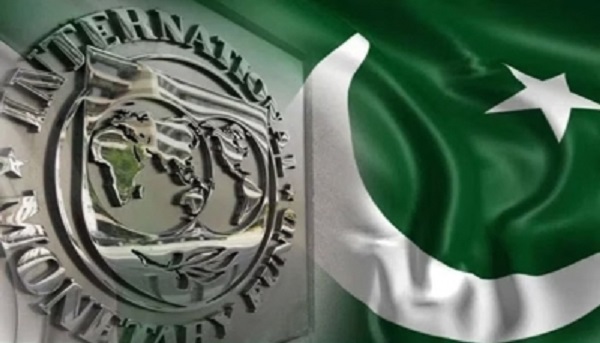Islamabad, (Samajweekly) Pakistan worsening economic crisis, coupled with a steeply rising inflation, has increased the risk of a financial meltdown for the country, according to estimates and forecasts of global lenders including the International Monetary Fund (IMF).
In a latest forecast, the IMF has reduced the economic growth estimates of Pakistan to 0.5 per cent, while the inflation spike projection estimates are far above 20 per cent for at least two years.
The staggering estimates showcase Pakistan’s deep rooted financial crisis, which are showing their damaging affects on the people, who are facing severe hardships, which for the moment, are not going to end soon.
As per the IMF estimates, the interest rates in Pakistan are also expected to remain at their highest levels.
The IMF’s World Economic Outlook report has also slashed the projection of Pakistan’s current account deficit (CAD) for the current fiscal year, estimating it at about 2.3 of the Gross Domestic Product (GDP), which many experts believe is an unrealistic forecast.
As per the forecast, Pakistan’s GDP growth has been revised with a downward trend, while the inflation forecast has been revised with an upward trend, which are in line with the current existing harsh, tough and struggling conditions of the country’s economy.
The revision of IMF’s inflation estimates for Pakistan also highlight a big jump in comparison to the eighth review of the lender’s Extended Funding Facility (EFF, which was forecasted at about 19.9 per cent.
However, the revision of the inflation rate for the current fiscal year has shown the barometer crossing 27 per cent.
The current annual inflation rate in Pakistan has been recorded to be at 50-year high of at least 35 per cent.
And as per the IMF’s forecast, the next fiscal year 2023-24 average inflation forecast has been increased to at least 21.9 per cent, a massive rise in comparison to eight months back, when the IMF had projected a 10 per cent inflation rate for the year 2023-24.
Experts say that the high inflation rate projections indicate that the current ruling government will not have the leverage of reducing interest rates if it intends to get into the new IMF programme.
“The country’s central bank has already increased the interest rate by 21 per cent. The figure is still in the negative if adjusted with the inflation rate,” said Khurram Shahzad, an economic expert.
Pakistan claims that it has secured at least $2 billion financing assurance from Saudi Arabia and is waiting for another $1 billon loan confirmation by the United Arab Emirates.
However, even after the assurances, a gap of at least $3 billion still persists.









